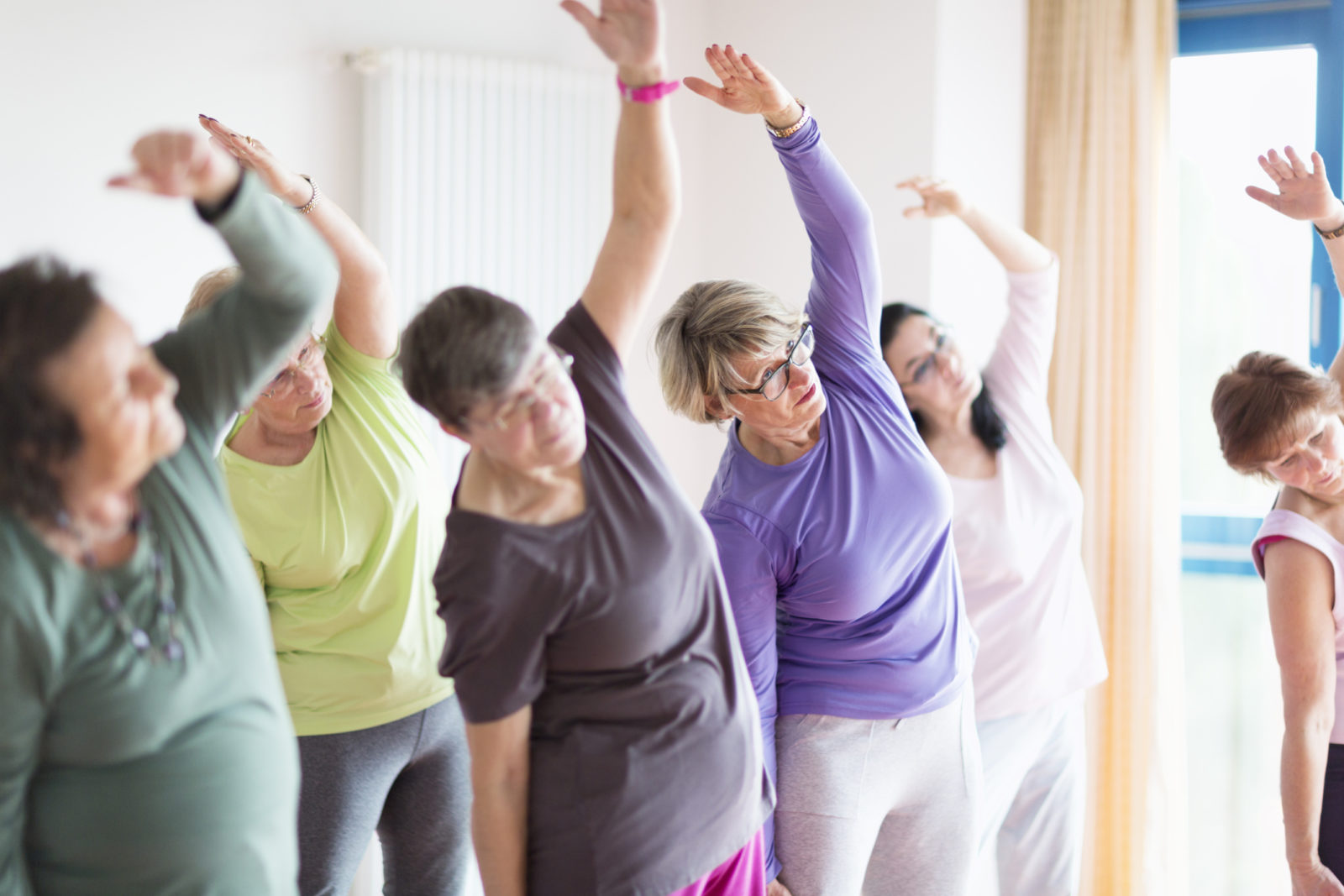Exercise Is Good for the Body – and the Brain

Staying active as we age is critically important. The famous centenarian George Burns once quipped, “If I knew I was going to live this long, I would have taken better care of myself!” One of the most important ways to maintain general health is by exercising.
The necessity for exercise increases as we grow older
The older you get, the more important exercise becomes. Seniors need to exercise more than their younger counterparts because they are at greater risk for the diseases that exercise can prevent, which include heart disease, diabetes, and stroke, among others. Numerous studies have shown that regular exercise protects the body against chronic diseases, improves mood and lowers your chance of injury.
Exercising improves cognitive function
But lately, more attention is being paid to how exercise may help build a healthy mind. A new study from the University of British Columbia, which reviewed data from more than 150 research articles, suggests that physical activity is associated with a reduced risk of Alzheimer’s disease. Researchers also confirmed that for those who are currently living with Alzheimer’s, exercise may improve the ability of these individuals to perform daily activities and may improve general cognitive function.
Numerous studies highlight the benefits
Here are just a sample of the numerous studies that show a strong correlation between exercise and brain health:
- In a recent University of Kentucky study, researchers discovered that exercise increased blood flow to critical areas of the brain (and therefore, oxygen and vital nutrients), which may provide some protection from dementia.
- In a recent study published in Neurology, participants who reported high levels of physical activity had less cognitive decline over a five-year period than those who reported no to light exercise. The difference between the two groups was equivalent to 10 years of aging.
- In a study involving more than 600 people in Scotland, researchers discovered that people in their 70s who participated in physical exercise had less brain shrinkage than those were more sedentary. They also had fewer signs of aging in the brain overall, including better brain circuitry connections. University of British Columbia researchers discovered that regular aerobic exercise – like running, swimming, or biking – appeared to increase the size of the hippocampus, the part of the brain involved in learning and verbal memory.
How exercise helps protect the brain
Exercise helps improve brain health in a number of ways. First, as show in the University of Kentucky study, it increases blood flow to the brain, which delivers oxygen and removes waste. It has also been shown to increase the growth of blood vessels in the brain. Studies have also shown that people who are physically active have more acetylcholine receptors in the brain, a key player in neural communication. Second, regular exercise helps stimulate brain-derived neurotrophic factor (BDNF), which is responsible for helping the growth and proliferation of brain cells. Finally, exercise improves mood and sleep, which help reduce stress and anxiety, which can frequently lead to cognitive impairment. According to the Alzheimer’s Research & Prevention Foundation, physical exercise reduces your risk of developing the disease by 50 percent.
A little goes a long way
And for those who think they simply don’t have enough time in the day to exercise, we have some good news and bad news for you. The good news is that even moderate exercise can provide amazing benefits. In a study done by the University of Georgia, researchers discovered that even brief workouts – as little as 20 minutes a day – improve memory. In another study of seniors, those who reported that they exercised for at least 30 minutes a day, three times a week, reduced their risk of vascular-related dementia by 40 percent and cognitive impairment due to any reason by 60 percent. The bad news? You no longer have a reason to put off exercising.
Our commitment to keeping residents active
Charlesgate has a very robust activities schedule, which includes a focus on wellness, movement and quality of living. We offer daily exercise options, including gentle movement activities for those who may have limited mobility, including chair yoga and beach ball volley. Our seasonal walking club explores the outdoors during warmer weather.
![Charlesgate [logo]](https://www.charlesgate.net/wp-content/uploads/sites/218/2016/12/logo-new.png)